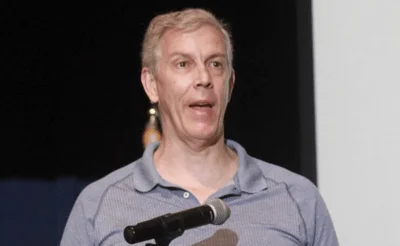Chicago Mayor Brandon Johnson | Wirepoints
Chicago Mayor Brandon Johnson | Wirepoints
A recent Illinois Policy Institute (IPI) investigation shows that by the numbers, gang-related violence is at its lowest point in two decades. But the loss of a gang database administered by the Chicago Police Department could at least partially explain the lower figures, the report said.
Chicago gangs were suspected to be behind 1,808 crimes reported across the city in 2023, the fewest in any year since before 2004, according to data IPI obtained through a Freedom of Information Act request.
“More than 1-in-5 Chicago homicides were suspected of being motivated by gang activity in 2023, but that is the lowest ratio in the past two decades, Chicago Police Department data shows,” the report by IPI’s Patrick Andriesen said.
“But the decline may be more about gangs splitting up and how well police can track gang members since their gang database was shut down in 2023,” he added. “The problem is likely worse than the data shows, the city’s former top cop said.”
Former Chicago Police Superintendent Garry McCarthy, who served under former Mayor Rahm Emanuel, told IPI that the decline in gang-related crime could be “overstated” with the scrapping of the gang database.
The Community Commission for Public Safety and Accountability voted to shut the database down. The vote fulfilled a campaign promise by Mayor Brandon Johnson who said that the database was a “source of racial profiling.”
The IPI report also said that another contributing factor for the lower numbers is the loss of gang structure.
Joel Hamernick, founder of The Coach House Solutions Group and executive director of Strides for Peace, told IPI that “about 20 years ago, the gangs in Chicago had a strong governmental hierarchy and a lot more structure. But today, almost none of that structure remains.”
Among other developments, Hamernick said that “it is well documented that a large shift in the nature of the violence occurred when Chicago tore down public housing like Cabrini and uprooted people who had gang associations, spreading them over the city. Many of the most senior leaders of Chicago’s gang system were arrested in the early 2000s as well.”
“Now a lot of the violence we’re seeing is the result of young people with guns making autonomous decisions, as opposed to representing a group or being ordered,” Hamernick said. “And in most cases, it is retaliatory in nature.”
A recent New York Post report warns of gang violence increasing again with the influx of illegal immigrants who are members of the vicious Venezuelan gang, Tren de Aragua.
“When the black gangs here get fed up with the illegalities and criminal activities of these migrants or non-citizens, the city of Chicago is going to go up in flames and there will be nothing the National Guard or the government can do about it when the bloodshed hits the streets,” Tyrone Muhammad, a former Chicago gangster who did 20 years in prison and now runs a violence prevention program, told the Post. "It’ll be blacks against migrants."





 Alerts Sign-up
Alerts Sign-up